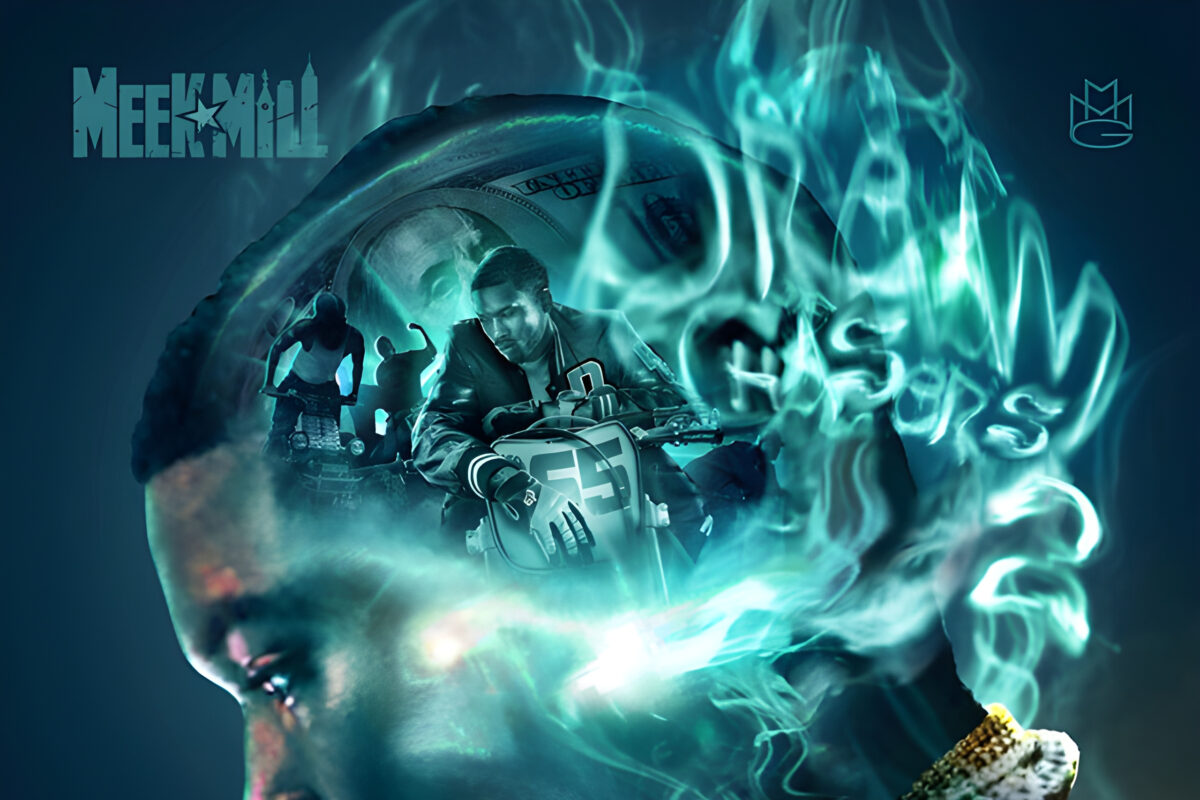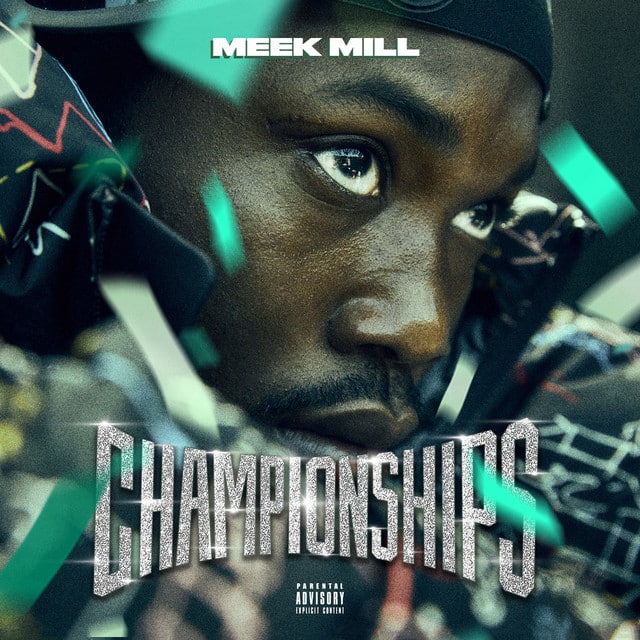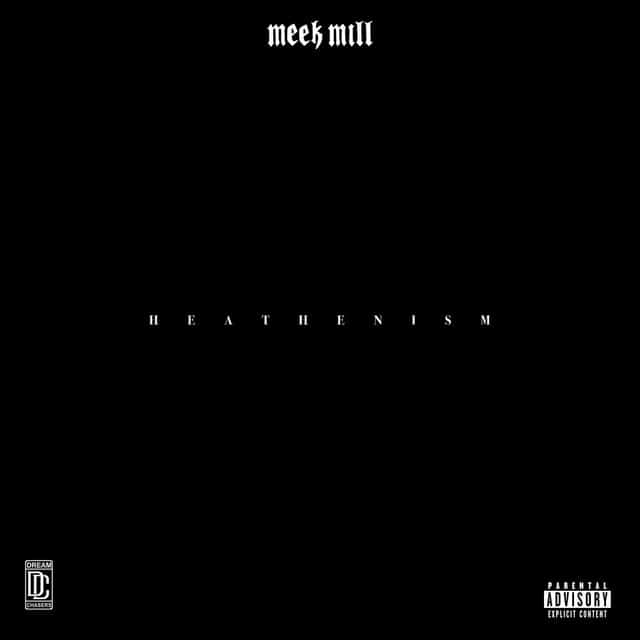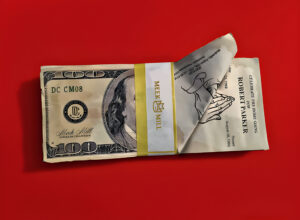Released: 2012
Meek Mill’s “Lean Wit It” is a track steeped in street narrative, detailing the hustler’s lifestyle with unapologetic bravado. The song leans heavily into themes of drug trafficking, opulence, and the grit of urban survival, with Meek delivering his lines with the aggressive confidence for which he is well-known. Throughout the song, the language and imagery convey the world of high stakes where wealth is accumulated through illegal means.
In the first verse, Meek Mill begins with an imagery-rich portrayal of the drug trade. He likens himself to being “in the kitchen goin ham again,” a phrase indicating intense, unrelenting activity in cooking up drugs. “Birds” is street slang for kilograms of cocaine, drawing a parallel to “Cam and dem,” referring to the rapper Cam’ron known for his drug-related themes. Meek speaks of “hammers,” meaning guns, signifying readiness for violence to protect their operation.
The verse continues with metaphors that emphasize the scale and stakes of the operation. “Whole brick throw it on a triple beam,” suggests weighing a large amount of cocaine to distribute, with a nod to its high-stakes nature by stretching it “like a limousine” for maximum profit. Meek alludes to “Mr. Clean” when drugs are free of impurities, marking his influence across different neighborhoods.
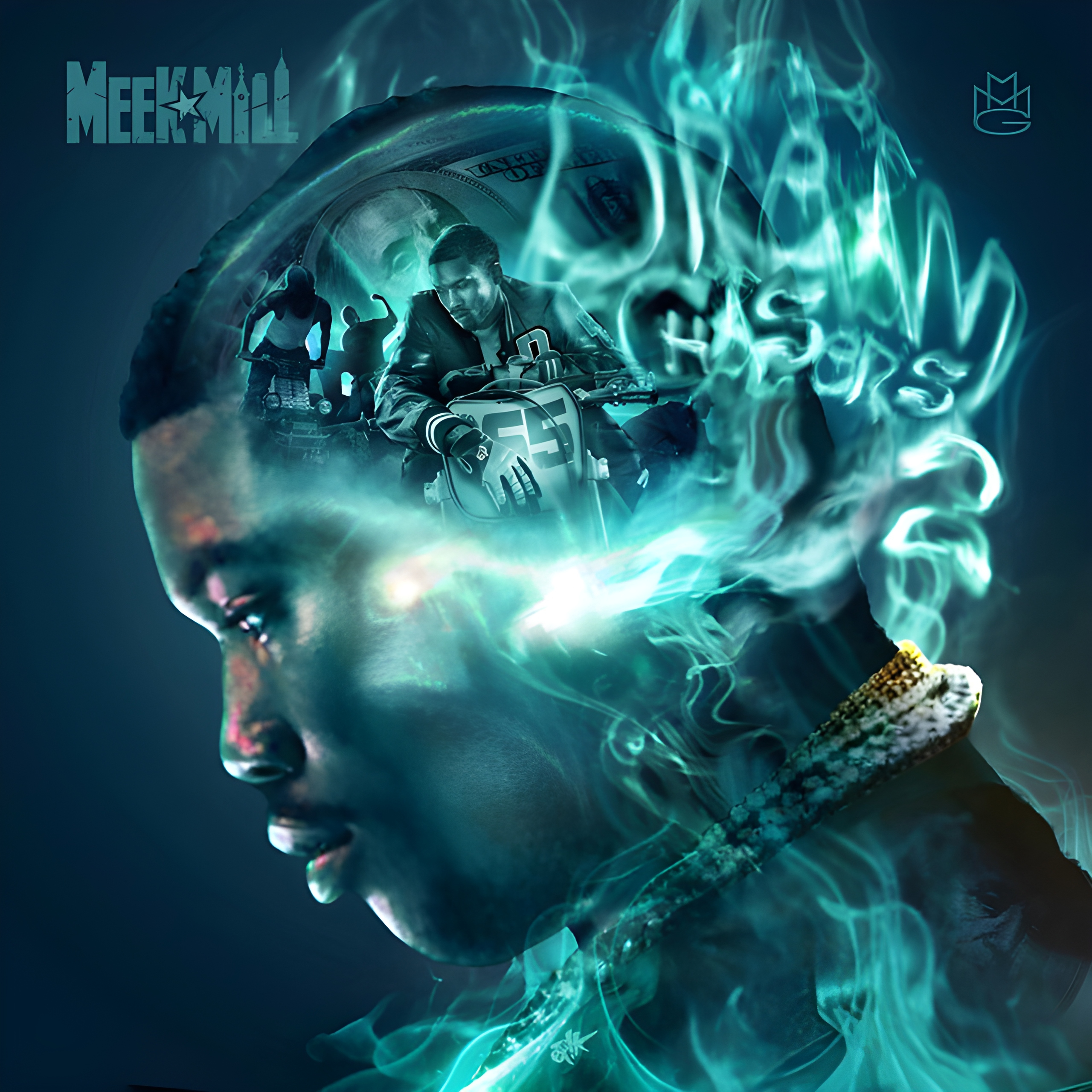
His mention of “Ghost boys, in a ghost nigga,” uses a dual meaning referencing both a phantom car and the concept of remaining unseen in their dealings. He declares himself the “coach,” leading his “team of killers,” which enhances his self-portrayal as a powerful figure in his domain. His wrist is described with a “presidential” watch, aligning himself with success and authority.
Moving into the hook, Meek uses “Lean wit it, rock wit it,” not just as dance moves, but as a metaphor for the balance required in cooking drugs and handling the pressure. The lines “throw some bake up in the pot wit it” speak to the act of adding baking soda to crack cocaine, an illegal activity requiring both skill and timing.
Meek Mill uses “microwave or we gon pop whip it” to reference methods of cooking crack cocaine, illustrating his dexterity and familiarity with the drug preparation process. The repeated mantra of “when it get right we drop that ice and make it lock wit it” further exemplifies the transformation from liquid to solid state when preparing crack, solidifying his command over the craft.
In the second verse, Meek Mill flexes his success with an aggressive edge. By “made a million off a mixtape,” he illustrates how his street prowess transitioned to music industry success, underscoring his entrepreneurial acumen. The line “you sellin that whip weight” suggests lesser quality cocaine compared to his pure offerings, solidifying his top-tier status in the hierarchy.
Meek continues to paint vivid scenes of his affluence with imagery like “fifty cash in my pocket,” while “blowin money fast” implies a lifestyle of extravagance. The clever line “Nicki ass in my pocket” suggests not just wealth but aligning himself with hip-hop royalty like Nicki Minaj, boasting a level of power and attraction.
Verse three pivots to street ethics, where Meek addresses loyalty and betrayal within the neighborhood. By treating “thirty-six” as a “dirty bitch,” he’s indicating the quantity of cocaine and the process of offloading it quickly and efficiently. The reference to not being called by his “government” name speaks to maintaining an identity that’s shielded from legal systems and informants.
Meek reinforces the theme of silence with “if you snitchin crack ya melon shit,” where betrayal among peers is dealt with through violence. “Papi bring ’em on the boat” signifies importing drugs, possibly referring to Latin American connections in the drug trade. As he closes, Meek paints a picture of eluding law enforcement by hiding firearms, portraying a life constantly on edge, always one step ahead of authority.
Ultimately, “Lean Wit It” captures Meek Mill’s reality and persona – an assertive mix of street-savvy strategist and ambitious entrepreneur. His ability to blend the ruthless world of street survival with rap industry prowess makes the track resonate with authenticity and intensity. Through his lyricism, Meek sheds light on the complexities and allure of a life in the fast lane, mirroring his personal journey from the streets of Philadelphia to global hip-hop prominence.
